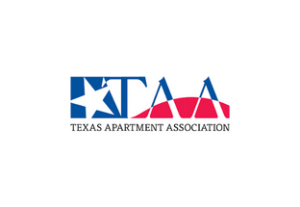Compliance Updates for March 2016
MRI strives to keep our users informed and up to do on changes in the industry. Below is a compilation of compliance updates in March:
HUD’s Secure System for Electronic Filings (FASSUB)
By March 31, 2016, HUD Owners and/or their representatives will submit annual financial statements online via HUD’s Secure Systems. HUD recommends users confirm their passwords and WASS User ID’s (M-ID) are active prior to filing.
HUD Secure Systems mandates that all users change their passwords every 60 days and log in to Secure Systems at least every 90 days. If your password or WASS ID has been deactivated due to non-use, click on the links below to reset them or contact the REAC Technical Assistance Center (TAC) by phone at 1-888-245-4860.
Password: https://hudapps.hud.gov/reac/wass/resetPwd.html
WASS ID: REAC_TAC@hud.gov – you will be asked to verify your User ID, Mother’s maiden name and last four digits of your Social Security number.
*Due to the anticipated heavy volume of calls, TAC suggests users attempt contact during off peak hours (7:00 a.m. – 8:30 a.m. and 6:30 p.m. – 8:30 p.m.) Monday through Friday.
Violence Against Women and Justice Department Reauthorization Act of 2005 – VAWA Lease Addendum http://portal.hud.gov/hudportal/documents/huddoc?id=91067.doc
The recently released version of the HUD Form 91067 – VAWA addendum content has not changed from the previous version with the exception of the new expiration date added of 6/30/2017.
HUD has granted software owners that produce the addendum the right to remove the expiration date. Owners/Agents using a version of the HUD Form 91067 with an expiration date, must include the new expiration date on any VAWA addendums executed since its release.
Although HUD provides the VAWA lease addendum HUD Form 91067, it is not a mandatory form. Owners/Agents can incorporate the VAWA protection provisions in their current lease or addendums provided they have the required language. No revisions have been made to the expired HUD Certification of Violence Form 91066 or the Form 92066 Supplement to Application for Federally Assisted Housing.
Owners/Agents must implement a VAWA lease addendum for all current and new tenants.
IRS Publishes New Utility Allowance Sub-metering Regulations
Utility Allowance Sub-metering Regulations
Effective March 3, 2016 the final and temporary regulations were published in the Federal Register regarding utility allowance sub-metering which is a system that allows owners of LIHTC properties to bill tenants for individually metered utility usage.
The regulations clarify the conditions in which utility costs paid by a tenant based on actual consumption in a sub-metered rent-restricted unit are treated as paid by the tenant directly to the utility company and do not count against the maximum rent that the building owner can charge.
Owners may sub-meter the property, bill tenants for their actual energy usage, and customize the utility allowances to reflect actual consumption, using the established methodology adopted by the IRS.
The regulations extend the principles of these sub-metering rules to circumstances in which a LIHTC Owner sells to low income tenants energy from a renewable source that is not delivered by a local utility company.
HUD Publishes Final Rule on Streamlining Administrative Regulations
On March 8, 2016, HUD published for review a new Federal Register Notice entitled Streamlining Administrative Regulations for Public Housing, Housing Choice Voucher, Multifamily Housing, and Community Planning and Development Programs. The Notice provides guidance and clarification to agencies that administer both Public & Indian Housing (PIH) and Multifamily Housing programs.
Among some of the proposed changes in the final rule:
- Under the Housing Choice Voucher Program, adopts two separate dates of admission (“voucher issuance” and “date of lease-up”) for purposes of verifying social security numbers for child applicants under the age of six.
- Revises Earned Income Disallowance (EID) benefits to apply for 24 straight months irrespective of whether a family maintains continual employment during the 24-month period. Families currently participating will continue to follow the previous requirements until their benefits expire.
- Revised the definition of Extremely Low Families to include the phrase “a very low-income family.”
- Streamlined annual reexamination measures to provide PHA’s with the option of conducting a streamlined income redetermination for any fixed-income source, regardless of whether an individual or a family also has a non-fixed source of income.
- Authorizes PHA’s to obtain third party verification of all family members with assets under $5000 every three years.
- Allows PHA’s the option of making utility reimbursement payments on a quarterly basis for reimbursements totaling $45.00 or less per quarter. A hardship policy must be instituted if such payments would create a financial hardship for the tenants
While the Final Rule effective April 7, 2016 includes revisions to the proposed rule and finalizes regulations contained in the interim rule, in order for agencies to adopt the changes, PHA’s may need to revise their agencies Admissions and Continued Occupancy Policy, Admin Plan or PHA Plan.
UPCS Inspector Protocol on Bed Bug Infestation in HUD Assisted and Insured Properties
A recent PIH-REAC Notice No. 2016-01 amended the inspection requirements followed by all UPCS Inspectors conducting physical inspections of HUD assisted or insured units reported to have bed bugs. After researchers concluded that a bed bug transfer to an Inspector from an infested unit is unlikely, the protocol now requires Inspectors to enter all units in which bed bugs have been reported. Inspectors should report the presence of or existence of bed bugs at any property being inspected by contacting the Technical Assistance Center to obtain a TAC number, identify the unit/building and conduct the normal REAC inspection. Questions relating to the notice should be directed to the REAC TAC office @ 1-888-245-4860.
Reinstatement of Management and Occupancy Reviews
HUD announced its intention to have PBCA’s begin conducting Management and Occupancy Reviews (MOR’s) as soon as April 1, 2016 beginning with projects identified as “high-risk” in the 42 states and territories for which MOR’s have been on hold for the last five years.
HUD may review the following factors for projects/properties that have a:
- Previous below average or unsatisfactory MOR rating
- Active Partners Performance System (APPS) flag
- Failing (REAC) score
- Poor financial ratings in the Financial Assessment Subsystem (FASS)
- Recent Office of Inspector General (OIG) investigation or referrals
For properties administered by a PBCA in one of the eleven uncontested states, by HUD (PRACs) or by a traditional CA, MOR’s will continue as presently conducted.
Do you know the real cost of moving?
Whether starting the search for a home or simply moving to a different community, almost every consumer should know that the true cost of their next move will probably be higher than “sticker price.” Don’t be caught off guard. Simply fill out the for…

